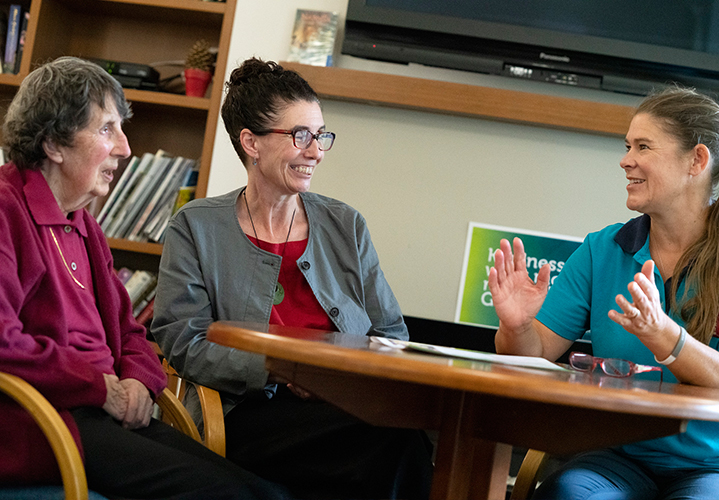
The importance of planning ahead
with Bonnie Robinson, CEO
Planning ahead for all stages of our retirement years is vitally important, says HBH Senior Living CEO, Bonnie Robinson. Rather than waiting until you reach a crisis in your life, be proactive so you can get what you want.
Having worked in the retirement industry for much of her career, Bonnie Robinson has seen first-hand how important it is to plan for your retirement years well ahead of time. And not just for the ‘young-old’ years, but also the ‘old-old’ years too.
“We do a lot of thinking about early retirement,” says Bonnie. “Most of us plan for the years when we’re still healthy and able, but inevitably we do get older and some things do become more difficult.”
“In our experience, it’s a lot easier if people have already thought about this early on, rather than leaving it until crisis point,” says Bonnie. “If you haven’t, you may have to make important decisions very quickly – which aren’t always the best decisions.”
“If you’ve thought ahead and made some plans, you can change your mind later on, but at least you’ll understand your options and make an informed decision – rather than someone else making those decisions for you.”
She says the four most important questions to ask yourself are:
- Where do you want to end up living?
As we get older, our housing needs often do change. The family home can become too large, too much to maintain, or perhaps you can’t manage stairs or the garden any more. If that becomes the case – think about what your options are and where you want to live. Do you want to stay in your home and get help such as a cleaner, gardener or nurse? Do you have family nearby who can help on a regular basis?
Or is staying at home going to be an enormous hassle? Are you likely to want to into a retirement village or apartment at some point in the future? If so, start thinking about that now, so you can choose somewhere you want to live, rather than having to take whatever is available if you need to make a change quickly.
- What do you want to do if you’re on your own?
If something was to happen to your spouse or partner, what are your options? Would you wish to carry on living in your home on your own? Would you be able to? Or would that be the catalyst for you to move into an apartment or a retirement village?
As much as possible, try to think about it from a practical, day-to-day point of view. If that person isn’t there to cook dinner/do the gardening/change the light bulb/drive the car, can you do those things on your own? “Many people say they’d like to live in their own homes forever, but you need to consider if that’s really realistic for you,” says Bonnie. “It’s important to be really honest with yourself, and think through your other options.”
- What if you’re not able to make a decision yourself?
If something happens to you – be it an accident or illness – and you can no longer live independently, having a plan in place is essential. If you think you’d want to move into a rest home or hospital (or if you have a particular place in mind) it’s good to think and talk about it beforehand, especially with your adult children who might become involved in those decisions.
For example, Bonnie says her mother had always said that she didn’t want her to have to look after her. “That was really helpful to know because Mum got very sick, very fast, and we had to make a decision incredibly quickly,” she explains. “Knowing that Mum wanted to go into a care facility in these circumstances made this difficult decision much easier for all of us.”
“It’s never too early to have these conversations – you might be fit and well right now, but we all age, and we can’t always continue to do everything we once did. It’s good to think about what options are out there, how you feel about those and let your family or friends know.”
- When is the best time to move into a retirement home?
“In our experience, it’s good to move in earlier than you might think,” says Bonnie. “For example, it can be really nice when couples move in together. If one spouse dies, everyone knows them as a couple and can share those memories with them”
Bonnie points out that it’s still fine to move in to a retirement village on your own, but she has noticed that those who’ve planned ahead and made the move when they can still enjoy everything the village has to offer, tend to have a better outcome than those who’ve made a decision as a result of a crisis.
“If we don’t make choices proactively, sometimes things happen that can make the decisions for us. To explore our options before we need them, make decisions early, and to convey those wishes to others, is much more desirable.”
A good way to start is simply to sit down and talk with trusted family and/or friends, then make a plan to start looking at what options are around. That way, you can be assured that whatever your future health situation, you can be supported to flourish as you age.
